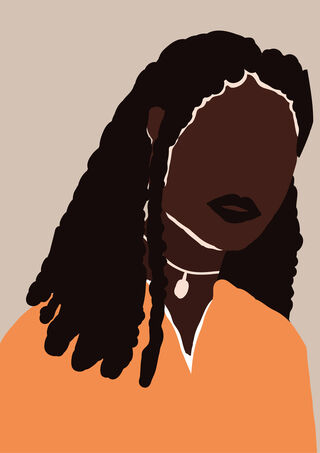Trauma
Ancestral Traumas, Wisdom, and Resilience
How are our generational traumas also our resistance?
Posted March 30, 2021 Reviewed by Devon Frye
Key points
- A less-discussed aspect of historical or generational trauma is generational resilience—or the ability of traumatized groups to thrive despite the harm inflicted on them.
- Identifying coping mechanisms used by traumatized groups in the past and present can help bolster well-being and start to undo the harms of generational trauma.
- Positive relationships, humor, and cultural identity have been shown to be valuable coping mechanisms.
- Therapists can help clients impacted by generational trauma by helping them make use of coping mechanisms, pointing to their strengths, and fostering their resilience.
“Native patients have suffered a profound wounding of the soul that ‘Western’ therapy actually exacerbates.” (Gone 2010).
Therapists, educators, and organizations are attempting to include cultural awareness into practice and taking stabs at DEI work. This is great. People are paying for anti-racist consultation and asking the right questions. What do I do? How can I change what I have learned and truly become anti-racist clinicians and educators? But I see something sorely missing from these conversations.

A vital step we need to take while acknowledging the inequities Black and Brown people face in the United States is to also recognize the depths of resilience involved with such deep and atrocious cumulative and generational traumas.
Maria Yellow Horse Brave Heart, Ph.D., who studies ancestral trauma at the University of New Mexico, describes historical trauma as the “cumulative emotional and psychological wounding over the lifespan and across generations, emanating from massive group trauma experience.”
Examples of historical traumas include, but are not limited to:
- genocides
- massacres
- wars
- detainment and family separation (example: migrants at the southern border of the U.S.)
- forced relocations
Historical traumas are harmful especially when they are not seen as a crime by the dominant culture—and afterward, attempts to criminalize or punish victims can further exacerbate harm. Examples of such practices include:
- banned languages
- desecration of monuments or of spirituality (example: historical laws against Indigenous people practicing their spirituality in the U.S., or Shinnecock battles for land and burial grounds against Suffolk County in NY)
- other forms of ignoring the humanity of a group, causing damaged cultural identity (example: AAPI hate crimes committed throughout the entire pandemic)
Some examples of major historical traumas that cause generational/cumulative trauma in the U.S. include:
- the experiences of the American Natives after European colonization
- slavery for Black Americans and its aftermath, which persists to this day
- Japanese concentration camps (note: Some experts argue that calling them "internment camps" is a euphemism for the horrors of these camps, and that it's more appropriate to call them what they were)
- the Holocaust and its aftermath, which persists to this day
- attacks, violence, and discrimination committed against people with disabilities (example: long histories of forced hospitalizations, compulsory sterilization, stigmas).
These examples may feel distant. But Japanese concentration camps were just over 50 years ago; Native Americans experience erasure to this day; we are only two lifetimes out of slavery; Black people had been enslaved on these lands longer than they have been "free"—and many would argue that there is a long way to go for true liberation.
Historical traumas reverberate across generations. In some aspects, they are seen through a positive lens (they may, for example, epitomize a group's survival and resilience) but they are not often recognized as such. Ancestral traumas are often but not always untreated because, in many cases, they are just seen as “life.”
Of course, ancestral, generational, or cumulative traumas can happen collectively while individuals of the same group are experiencing very different things. For instance, the collective trauma of the pandemic will have effects on our descendants—how they understand health, quarantines, mandates, and life. But some people experienced large amounts of grieving and struggle while other groups lived largely unaffected. Some groups were able to work from home and maintain their same lifestyle; some groups lost everything. These are all multiple varying experiences for the same overall issue.
Historical traumas can impact parenting, wellness, and one's outlook on life, and contribute to physical, psychological, and spiritual trauma. It is something we must address with our clients or else we are not doing the work of therapy.
The less-discussed aspect of historical or generational trauma is generational resilience. Resilience is “generally understood to describe an individual’s ability to endure and to adapt in a positive manner to negative life events and negative emotional experiences or stressors” (Belcourt-Ditloff, 2007).
We can also call it posttraumatic growth, stress-related growth, perceived benefit, and/or thriving. The acknowledgment of thriving in the face of governments or a dominant culture is often neglected in DEI work. It is a key to guiding clients towards healing, too.
How do groups impacted by harmful laws, hate crimes, and systematic racism "bounce back"? What are the coping methods that their ancestors used and perhaps passed down to descendants—and how do these methods ensure thriving? How do positive relationships, humor, and cultural identity help traumatized groups move through trauma and adversity? These coping methods are the adversarial growth. And they are passed down from ancestors through wisdom that often goes unnoticed.
We need to point to and integrate this resilience in our treatment as we work with patients.
References
Gone, J. P., & Kirmayer, L. J. (2010). On the wisdom of considering culture and context in psychopathology. In T. Millon, R. F. Krueger, & E. Simonsen (Eds.), Contemporary directions in psychopathology: Scientific foundations of the DSM-V and ICD-11 (p. 72–96). The Guilford Press.




